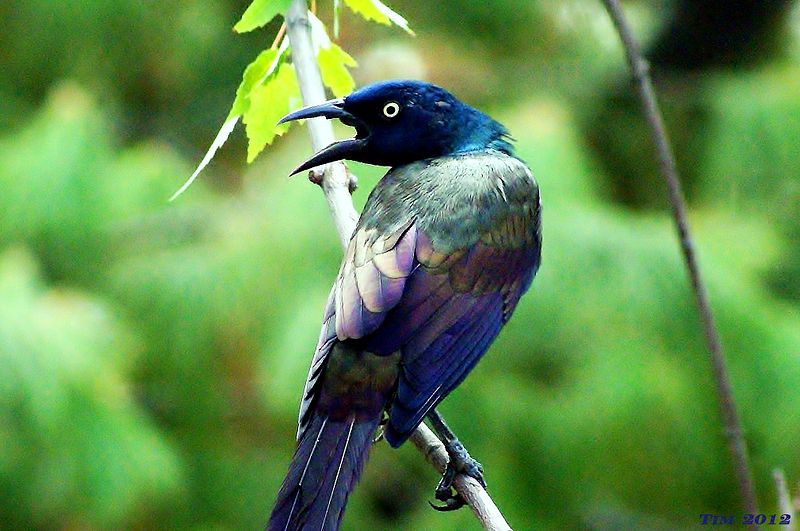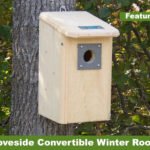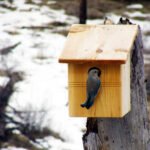
No one likes a bully and no bird is a bigger bully than the Common Grackle. The large blackbirds have huge appetites, travel in big flocks and often take over bird feeders—eating everything they can get their beaks on.
The range of Common Grackles covers a hefty portion of the eastern United States and during migration season, they move in rapacious flocks that cause nothing but headaches and money.
Here are some things you can do to stop them from taking over your feeders.
Get feeders with small or collapsible perches
Dealing with Common Grackles is similar to dealing with squirrels: they both want to raid your feeders and will do anything to do it. Fortunately, both have many of the same weaknesses. The first is their size. By getting a feeder with a perch that closes when too much weight is on it, you can keep out grackles and squirrels. The smaller and more desirable birds will still be able to get in, however. An example of this is the Heritage Farms Absolute II Squirrel-Proof Feeder.
If you don’t want a squirrel-proof feeder, you can also just get a feeder with small perches designed only for songbirds. Grackles will be too large to grab a hold of the perches and won’t be able to eat the seed.
Put a cage around your feeders
Another squirrel-proof device that’s equally effective on grackles is a mesh cage. Flocks of hungry grackles can easily devour suet and empty feeders in a matter of minutes, but they are much too large to get through the cage feeders designed to keep out squirrels. Again, smaller birds will still be able to get through the compartments in the cage.
Avoid tray and hopper feeders
When you see that flock of grackles coming into your yard, you should immediately pack up your feeders that are easy to land on until the grackles move on. Tray and hopper feeders are essentially platters for grackles to feast. You don’t have to take the feeders down permanently, just until the grackles are no longer coming around.
Use black oil sunflower seeds to reduce spillage
Although you may be able to keep grackles from raiding your feeders, they may also be eating all the spilled seed on the ground. Birds can be pretty messy and dump much of the seed they don’t like on the ground. To help birds avoid making a mess and attracting grackles, put black oil sunflower seeds into the feeder because birds will eat everything and won’t spill very much.
Try using safflower seeds in feeders
Alternatively, grackles do not like safflower seeds very much, but birds like chickadees and nuthatches do. Grackles are not necessarily the pickiest eaters, so they might still eat safflower in certain situations, however.
If you can’t beat them, enjoy them
Unlike European Starlings and House Sparrows, Common Grackles are native to North America and can be quite beautiful to look at. They have iridescent plumage and unique calls. If they’re in your yard during a migration stopover, try to enjoy them for a little bit and they’ll be out of your hair in a few weeks.




21 Comments
We are getting a second mortgage on our home to feed the grackles, or rather, satisfy the grackles so other birds will feed too.
I too have that problem and gut response but am taking a different approach. Unlike plants where distinguishing weed from not-weed is a personal choice, animals are different in that moving, feeling and thinking lives are at stake. If there’s no objective reason to shun one species to favor another then it’s my attitude that needs modification and not my feeder. If you disagree then do so after at least having considered this point. But do realize that if you come around to this way of thinking, you get the benefit of not having to fret over grackles or spend money and time ridding your feeder of them.
I have one exactly like that and they have learned to cling upside down from it. They can’t for a long tme but they are still able to eat large amounts of the suet and also keeps the desirable birds away. I have tried hanging it lower and that works better but still are persistent enough to hang manage to hang onto it. I have finally “baffled ” the squirrels but the blackbirds and grackles are still a problem.